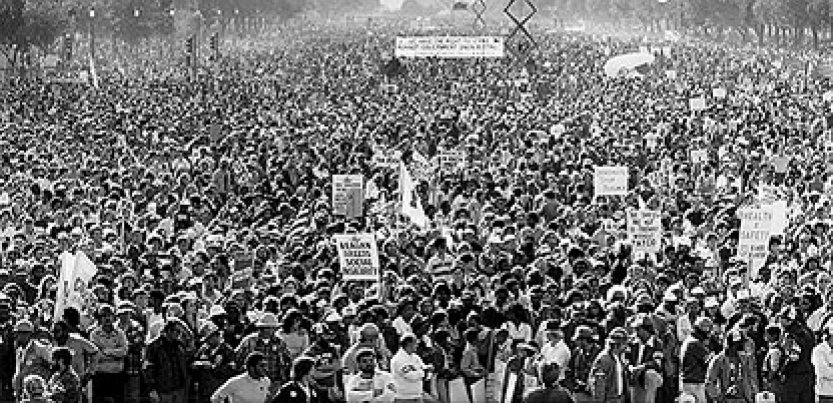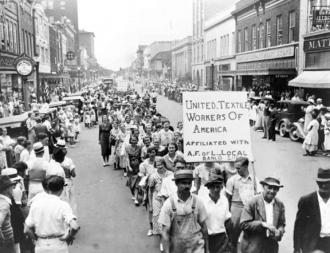
Labor historian. 1st Gen. Receipt keeper of American evil, then & now. Academic union thug. Beer. Music.
Energy is my currency.
3 subscribers
How to get URL link on X (Twitter) App

https://twitter.com/IdahoGOP/status/1048369408094089216.@IdahoGOP finds out about Native and other downwinder people in Idaho dying from radiation poisoning from nuclear blasts 50 years ago and finds it to be an ideal policy for the future.

 Prisoners at Ellis Prison, located twelve miles north of Huntsville, were expected to pick between 200 and 300 pounds of cotton a day. The fields were racially segregated, with black, white, and Mexican-American work crews.
Prisoners at Ellis Prison, located twelve miles north of Huntsville, were expected to pick between 200 and 300 pounds of cotton a day. The fields were racially segregated, with black, white, and Mexican-American work crews.

 In the early 20th century, Los Angeles was arguably America’s most conservative city. An hotbed of anti-union extremism, organized labor was almost entirely nonexistent. No one did more to push this policy than Harrison Gray Otis.
In the early 20th century, Los Angeles was arguably America’s most conservative city. An hotbed of anti-union extremism, organized labor was almost entirely nonexistent. No one did more to push this policy than Harrison Gray Otis.

 Disque was a military officer who enlisted in 1899, playing a role in capturing Filipino freedom fighter Emilio Aguinaldo. He retired from the military in 1916 to take a position as warden of the Michigan State Penitentiary but reenlisted when the nation entered World War I.
Disque was a military officer who enlisted in 1899, playing a role in capturing Filipino freedom fighter Emilio Aguinaldo. He retired from the military in 1916 to take a position as warden of the Michigan State Penitentiary but reenlisted when the nation entered World War I.

 The Comanche were, up until the late 17th century, a relatively small tribe living primarily in Colorado and Kansas. This all changed with the advent of the horse.
The Comanche were, up until the late 17th century, a relatively small tribe living primarily in Colorado and Kansas. This all changed with the advent of the horse.

 The ILWU had been a thorn in the side of west coast shippers for decades. Once led by the radical Harry Bridges, the ILWU slowly lost its aggressive edge as Bridges aged, but it remained a strong and independent union.
The ILWU had been a thorn in the side of west coast shippers for decades. Once led by the radical Harry Bridges, the ILWU slowly lost its aggressive edge as Bridges aged, but it remained a strong and independent union.

 The Farmers Alliance began in 1877, developing out of a series of white farm movements in the South and Great Plains, largely based on the inequalities of the Gilded Age for rural America, particularly the dominance of eastern capital and railroad monopolies over their lives.
The Farmers Alliance began in 1877, developing out of a series of white farm movements in the South and Great Plains, largely based on the inequalities of the Gilded Age for rural America, particularly the dominance of eastern capital and railroad monopolies over their lives.

 Founded in 1905, by 1908 the IWW hadn’t really done much of anything and its future was murky. This is not to blame the IWW.
Founded in 1905, by 1908 the IWW hadn’t really done much of anything and its future was murky. This is not to blame the IWW.

 In the aftermath of Reagan busting the air traffic controllers’ union, organized labor realized what was to befall them: a new era of union-busting and the decimation of the welfare state unions had fought so hard to build, if incrementally, over the previous half-century.
In the aftermath of Reagan busting the air traffic controllers’ union, organized labor realized what was to befall them: a new era of union-busting and the decimation of the welfare state unions had fought so hard to build, if incrementally, over the previous half-century.

 The Civil War created the conditions for the rapid growth of industrial capitalism. But it did not create the corruption that dominated the Gilded Age. Capitalists in the Gilded Age would become famous for their naked graft, but that was developing in the 1840s and 1850s.
The Civil War created the conditions for the rapid growth of industrial capitalism. But it did not create the corruption that dominated the Gilded Age. Capitalists in the Gilded Age would become famous for their naked graft, but that was developing in the 1840s and 1850s.

 The 1890s saw a rise in immigration from Germany and eastern Europe; thousands of those migrants came to the coal mines of eastern Pennsylvania.
The 1890s saw a rise in immigration from Germany and eastern Europe; thousands of those migrants came to the coal mines of eastern Pennsylvania.

 We sometimes don’t immediately think of the history of slavery as labor history, but of course, it’s absolutely fundamental to any understanding of labor history in the American South (and to a lesser extent in the North) both before and after the Civil War.
We sometimes don’t immediately think of the history of slavery as labor history, but of course, it’s absolutely fundamental to any understanding of labor history in the American South (and to a lesser extent in the North) both before and after the Civil War.

 The late 1910s were a fascinating time for organized labor. World War I brought both unprecedented acceptance of labor into the halls of power and an official state crackdown on radicalism.
The late 1910s were a fascinating time for organized labor. World War I brought both unprecedented acceptance of labor into the halls of power and an official state crackdown on radicalism.

 When the New Deal began, the Roosevelt administration pushed for the National Industrial Recovery Act. The NIRA was intended to eliminate the cutthroat competition that destroyed profits in many industries of this time, including textiles.
When the New Deal began, the Roosevelt administration pushed for the National Industrial Recovery Act. The NIRA was intended to eliminate the cutthroat competition that destroyed profits in many industries of this time, including textiles.

 The building where the chicken factory was located was built in the early twentieth century and had been used in various food processing operations in the past, including as an ice cream factory.
The building where the chicken factory was located was built in the early twentieth century and had been used in various food processing operations in the past, including as an ice cream factory.

 White Americans hated the Chinese.
White Americans hated the Chinese.